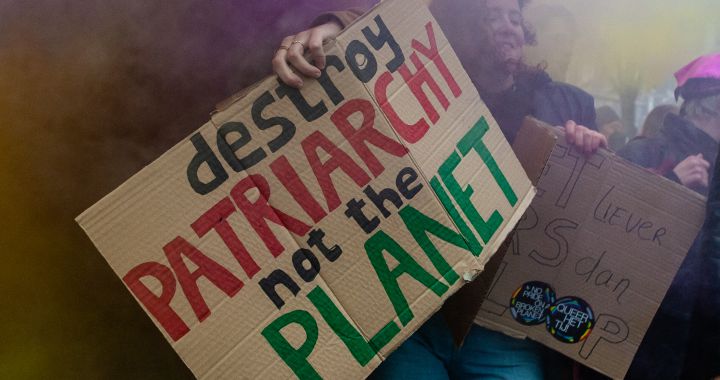The fight for the planet and for women’s equality are intimately linked. This is one of the main approaches put on the table by the ecofeminism, a school of thought that also critiques patriarchy and unchecked extractivism, with the aim of rethinking the way people relate to each other and to nature.
This 8M, millions of women will take to the streets to make visible the fight for a fairer world. On the occasion of this worldwide commemoration, from the Eco of LOS40 we invite you to meet a series of thinkers whose insights were and still are essential to understanding a growing movement. African, Latin American, European, Asian. Inspirational women who remind us that a better world is possible for all of us who inhabit it.
1. Judi Bari. Born in Baltimore (USA) in 1949, Judi Bari was a pioneer in the defense of the environment. Their fight focused on protecting the ancient redwood forests of Northern California from the big logging companies that cut them down mercilessly. He did this through the association he helped to create, Earth First!, with which he organized in 1990 what was called “the summer of the redwoods”: 3,000 volunteers from across the country answered the call to protect trees. Bari died seven years later, in 1997, a victim of cancer.
2. Wangari Mathai. Africa is often the great forgotten one. And yet, the continent is the epicenter of many struggles that concern ecofeminism. The Kenyan Wangari Maathai (1940-2011) was one of the undisputed protagonists. In 1977, he founded the Green Belt Movement, which has since worked to preserve the environment, improve the living conditions of the most disadvantaged and promote gender equality in developing countries. In 2004, Maathai’s work as head of the organization won him the Nobel Peace Prize for “his contribution to sustainable development, democracy and peace”.
3. Carolyn Merchant. Ecofeminism has a whole series of theoretical reference texts. Among the most important and referenced is The death of nature by American philosopher Carolyn Merchant. Merchant criticizes the key role that gender has played in organizing societies after the scientific revolution of the 17th century, in which the Earth changed from understanding the benevolent mother of all beings to an entity that must be controlled, dominated and exploited. . A way of thinking that explains who we are today and, to a large extent, where we have come to.
4. Bertha Caceres. The Honduran activist has waged a tough battle against plans to privatize her country’s rivers and major projects by hydroelectric companies. A fight that ended up costing her life: in 2016, she was murdered, in a crime for which David Castillo, director of the hydroelectric company DESA (Desarrollos Energéticos), would be convicted. Today, Berta Cáceres is a global symbol, but not the only activist from her country whose defense of the environment cost her her life. According to the NGO Global Witness, more than 120 people were murdered in Honduras from 2010 to 2017 for opposing projects like the ones Berta fought.
5.Jane Goodall. The English primatologist Jane Goodall is, surely, the most publicized of the personalities who claimed the key role of women in the fight for a more sustainable world. For 60 years, he has studied wild chimpanzees and their social interactions, in a whole series of works that have allowed us to better understand not only these animals, but also human beings. Beyond chimpanzees, her activism in favor of animal rights has made her a world reference figure.
6. Vandana Shiva. Perhaps the most important figure in current ecofeminism. The Indian physicist, philosopher and writer defends the link between all living beings on the planet, and has been involved in the fight to defend the environment and peoples for half a century. In the 1970s, he was part of the Chipko movement to prevent the clearing of Himalayan forests through nonviolent resistance. Among its many areas of action, its work in support of food sovereignty and local agriculture stands out from big business and transgenics.
7. Alicia H. Puleo. There are many authors in Spanish to understand ecofeminism: Yayo Herrero, Marta Tafalla, Catia Faria, Dina Garzón…. Among the most recommended, didactic and rigorous books, Ecofeminist keys. For rebels who love the Earth and animals, published in 2019 by Alicia H. Puleo. Professor of moral and political philosophy at the University of Valladolid, Puleo has published numerous books and articles in which she analyzes the inequality between men and women and its relation to the way we treat the planet. For Puleo, as for the rest of ecofeminists, the union of environmentalism and feminism is the key to a more egalitarian, just and sustainable world.

